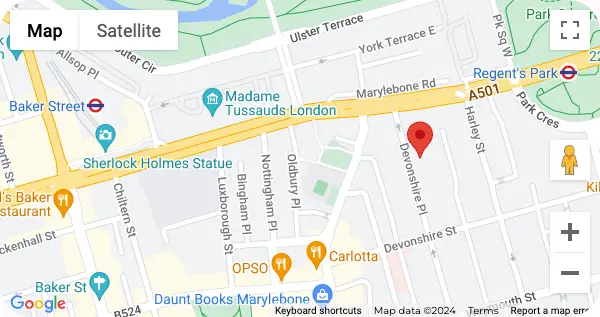Quick Summary:
- Mounjaro is an injectable medicine which is used in type 2 diabetes and for weight reduction.
- For some people, side effects can include GI issues, feeling tired, and headaches.
- Serious complications include pancreatitis, slow stomach emptying, kidney and thyroid issues.
- People with certain health conditions, those on higher doses, and those taking it long-term are the risk factors.
- Routine medical check-ups, balanced lifestyles, and seeking immediate treatment if you notice severe symptoms.
Learning Objectives
At the end of this article, you will understand:
- What Mounjaro (tirzepatide) is used for and why people use it.
- Short-term and long-term side effects compared.
- What to know about serious side effects and when you should contact a doctor.
- How to stay safe on Mounjaro at home in the UK.
What is Mounjaro?
Mounjaro is the brand name of tirzepatide, an injection administered in the UK for type 2 diabetes and weight loss. It acts on gut hormones that play a role in controlling blood sugar and making you feel full more quickly, which can help with weight management.
Now many people in the UK are exploring Mounjaro privately, including since injections like Ozempic and Wegovy have gained such popularity. Because of the potential benefits both for diabetes and weight loss, Mounjaro is one of the most exciting treatments around today.
See our Mounjaro London treatment for more information.
How Mounjaro Works
Mounjaro has a different mode of action than other weight loss drugs. It specifically acts on two hormone receptors in the body:
- GLP-1 receptor that slows digestion, aids the body in releasing insulin and suppresses appetite.
- GIP receptor that makes the body more responsive to insulin and it acts together with GLP-1 for best effect.
This dual action often leads to more weight reduction than other similar products. But because it slows digestion and alters the way the body absorbs food, some side effects of its use can persist with long-term use.
Overview of Long‑Term Side Effects
As with other drugs taken long-term, Mounjaro does have side effects which can occur years later. Here are some:
Common Long‑Term Side Effects
| Side Effect | Why It Happens | Typical Symptoms | Management Tips |
| Digestive Issues | Mounjaro slows digestion |
|
|
| Fatigue and Weakness | Eating less and lower blood sugar can reduce energy |
|
|
| Headaches and Dizziness | Due to dehydration, changes in electrolytes, or blood sugar shifts |
|
|
See our Mounjaro doses guide for detailed dosage schedules.
Serious & Rare Long‑Term Risks
| Condition | Possible Cause | Warning Signs | When to Seek Help (UK) |
| Pancreatitis | The pancreas gets inflamed. |
|
|
| Gastroparesis | Stomach empties more slowly |
|
|
| Kidney Problems | Dehydration from sickness and diarrhoea |
|
|
| Thyroid Issues | Based on animal studies, may affect thyroid cells |
|
|
Why These Long-Term Side Effects Happen
Knowing what causes side effects makes them easier to understand and manage:
- Digestive system: Mounjaro slows down how quickly the stomach empties, which can lead to bloating, constipation, or ongoing tummy discomfort.
- Pancreas: In rare cases, extra stress on the pancreas may cause inflammation.
- Kidneys: If you are repeatedly dehydrated due to illness or diarrhoea, your kidney is placed under a lot of strain.
- Thyroid: There’s some evidence that GLP-1 drugs may affect thyroid cells, but that is largely derived from research in animals.
Who Is More Likely To Get Side Effects?
There are some people who are more likely to have persistent issues with Mounjaro:
- Those who have pancreatitis, gastroparesis, kidney disease or thyroid problems.
- Higher doses and prolonged use in people can be accompanied by side effects.
- Lifestyle factors such as insufficient water intake, or consuming very little calories for people on a low-calorie weight loss plan, or excessive alcohol consumption.
Learn more about How Long Do Mounjaro Side Effects Last?
Effective & professional doctor-led Mounjaro at our central London clinic
How to Deal With Long-Term Side Effects of Mounjaro
Regular Check-Ups
In the UK, doctors tend to advise the following:
- Trips to the doctor every three to six months for checks of weight, glucose level and digestion.
- Yearly blood test for kidney and thyroid health.
- Ultrasound of your gallbladder or pancreas if you are at significant risk.
- Documenting side effects right in on the diary such as feelings of nausea, fatigue or stomachache.
If you would like personal monitoring advice, book a free consultation with our clinic.
Diet and Lifestyle Tips
There are simple daily habits that can help diminish side effects:
- Only have some moderate meals consumed.
- Avoid eating nauseating fatty greasy foods.
- Drink plenty of water every day.
- For a light stomach upset, try ginger and peppermint tea.
- Get some light exercise, like walking, to stimulate digestion.
When to Get Medical Help
Call for help if you notice:
- Persistent stomach pain
- Ongoing vomiting
- Any signs of dehydration like dark urine and dizziness.
- Neck lumps or problems in swallowing
In the UK, call NHS 111 or go to A&E if symptoms are severe.
Stopping Mounjaro and Potential Rebound Effects
If you stop taking Mounjaro, you will see:
- Increased hunger and craving will come back.
- Nausea or upset stomach for a brief period.
- Tiredness or mood changes
Most doctors recommend gradually tapering, rather than stopping at once. Staying the course with good habits may help keep your progress going.
See our article about How Long Does Mounjaro Stay in Your System?
Conclusion
Note that Mounjaro helps you with type 2 diabetes and weight loss, but long-term use may come with side effects.
- Common ones (nausea, constipation or fatigue).
- Serious risks (such as pancreatitis, kidney strain or thyroid problems) are really quite rare but would require careful monitoring.
The safest course is:
- Regular GP check-ups.
- Healthy daily routines.
- Knowing when to receive medical attention.
When taken with the proper support, Mounjaro can be used safely and successfully as part of a healthy lifestyle plan.
Check out What is the Current Mounjaro UK Price? Your Comprehensive Guide
FAQs
- What counts as a long-term side effect of Mounjaro?
Long-term side effects include stomach problems, tiredness or kidney issues.
- Can Mounjaro cause pancreatitis?
It is rare but can be serious. Get medical help right away if you feel severe stomach pain.
- Can it affect the kidney and thyroid?
Yes. Dehydration can strain the kidneys, and animal studies found possible thyroid tumours. Though human risk is still being monitored.
- How often should I get blood tests while on Mounjaro?
Doctors usually suggest it every 6 to 12 months to check your kidneys, thyroid, and blood sugar.
- How can I ease stomach side effects?
Eat small meals, avoid greasy foods, drink plenty of water, also try ginger and peppermint teas.
- What happens after stopping Mounjaro?
You may feel hungrier, have stomach changes, fatigue, or notice mood swings.
Reserve a mounjaro appointment
One of our experts will be more than happy to answer any questions you have.
Book AppointmentRosie McDonald
★★★★★
Dr Basu was kind & helpful - we were able to do the procedure on the day which was great!
31st January 2026
MsRm909
★★★★★
Excellent service as usual
31st January 2026
Matt Empringham
★★★★★
Great experience
28th January 2026








